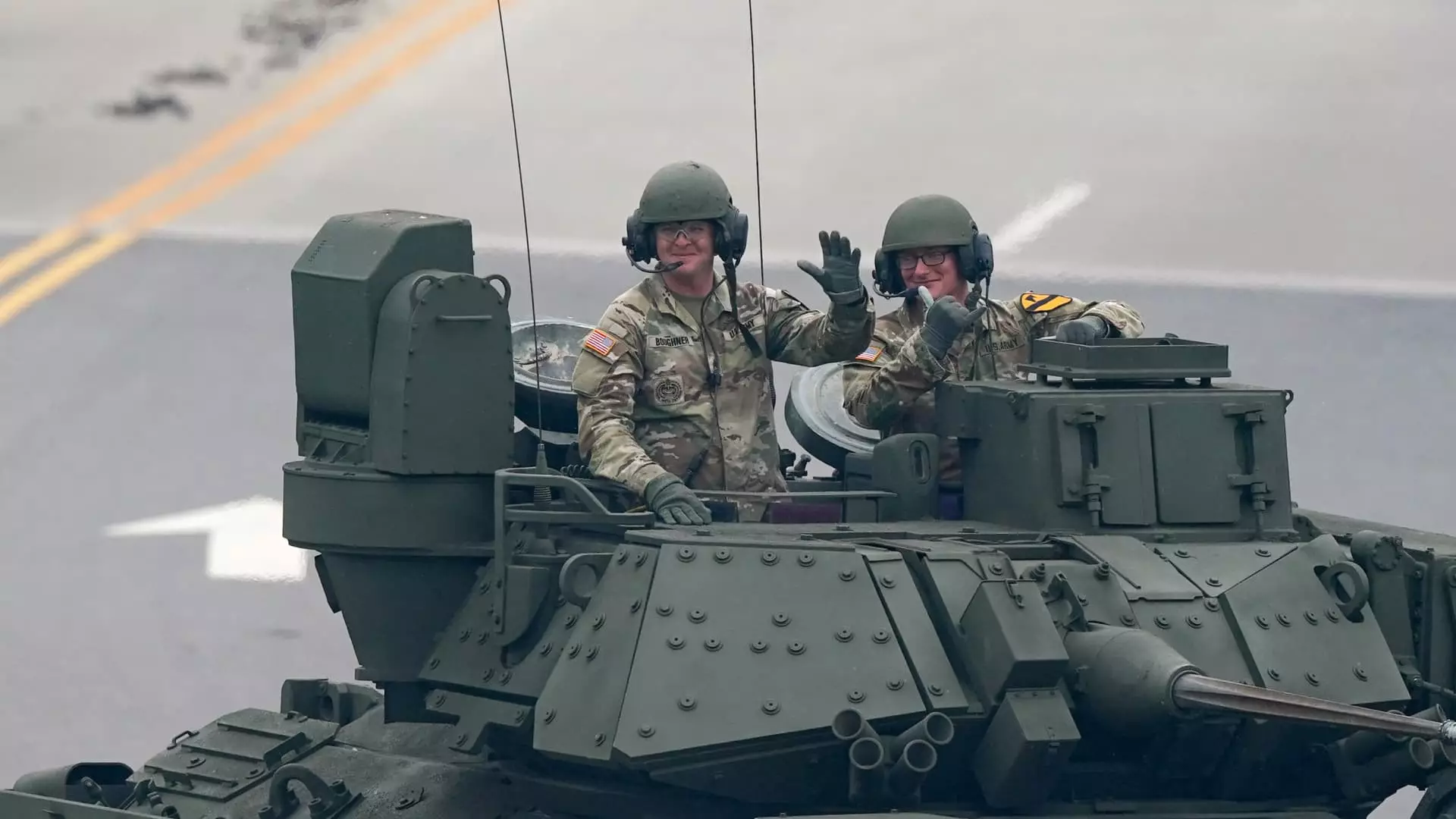In a surprising surge, European defense stocks have experienced a notable increase as world leaders convene for the annual NATO summit in The Hague. This year, the military alliance, composed of its 32 member states—Spain notably excluded—has proposed an ambitious increase in defense spending, targeting 5% of their respective gross domestic products (GDP). Such a drastic measure, while seemingly aimed at bolstering national security, raises significant concerns about the shifting priorities of Western nations, pushing military expenditures to the forefront while addressing pressing social and economic issues takes a backseat.
The Stoxx Aerospace and Defense index, witnessing a staggering nearly 50% rise year-to-date, underscores this alarming trend. British engineering firm Babcock International leading the charge with a 12% jump, and Italian aerospace company Avio, alongside Germany’s Renk, also demonstrating striking gains, highlights a sector seemingly too eager to capitalize on militarization. The notion that increased military spending equates to national security ought to be challenged. We must ask ourselves: is pouring resources into defense truly the key to safeguarding our societies?
A Reflection of Societal Values
The statistical data suggesting that the pan-European Stoxx 600 index is registering a minor gain reflects a broader complacency among investors. With all major bourses showing signs of growth, the market is signaling confidence in an increasingly militarized economic landscape. France’s CAC 40 and London’s FTSE 100 are also inching upward, fueled by a sentiment of reassurance following geopolitical maneuvering. However, one must not overlook the critical undercurrents of this optimism; it reveals a dangerous preoccupation with military strength over social responsibility.
The UK pound’s slight increase against the U.S. dollar might generate brief enthusiasm, yet it serves as a reminder of the financial markets’ disengagement from crucial socioeconomic issues. While global investors react positively to defense sector momentum, it becomes increasingly vital to consider the repercussions of elevating military funding over pressing issues like healthcare, education, and social equity. As national leaders prepare their joint statements for increased defense spending by 2035, one must ponder the long-term implications of such a choice.
The NATO Summit: A Step Backwards for Diplomacy
As NATO wraps up discussions in The Hague, the formal announcement of the 5% defense spending goal signals a retreat into a paradigm of military-centric solutions. The backdrop of a fragile ceasefire between Iran and Israel hangs heavily over proceedings, yet rather than nurturing diplomatic efforts to foster peace, NATO is choosing to ramp up militarization. The recent comments from U.S. Federal Reserve Chair Jerome Powell regarding inflation management and governmental stability seem to fade in significance against this military backdrop, echoing a deeply flawed priority in the current global narrative.
Prominent leaders, including President Donald Trump, have made their mark at the summit, wielding rhetoric that reinforces a global atmosphere rife with distrust and competition. The focus on military build-up not only undermines the strides made in diplomacy but also signifies an acceptance of a future riddled with conflict. This strategic pivot away from collaboration toward confrontation risks perpetuating a cycle of aggression that can lead to catastrophic consequences, not only for nations involved but for global stability as a whole.
A Call to Rethink Priorities
The stark reality is that while economies flourish under the auspices of defense spending, the social fabric of nations is fraying. Holding military expenditures in higher regard than investment in healthcare, climate change, or education reflects a misalignment of societal priorities. The historical tendency to equate strength with military capability must be scrutinized. Building robust communities should take precedence over enhanced militarization, as social harmony ultimately derives from investing in people and their needs.
In a world that constantly navigates geopolitical complexities, a critical reevaluation of resource allocation is not just sensible—it is urgently needed. Crafting a foreign policy that emphasizes diplomacy, conflict resolution, and economic cooperation holds more promise for a peaceful future than recurrent cycles of defense escalation. The question remains: will our leaders heed this call, or will they continue to drive us down a path of misaligned priorities and increased military spending?


Leave a Reply